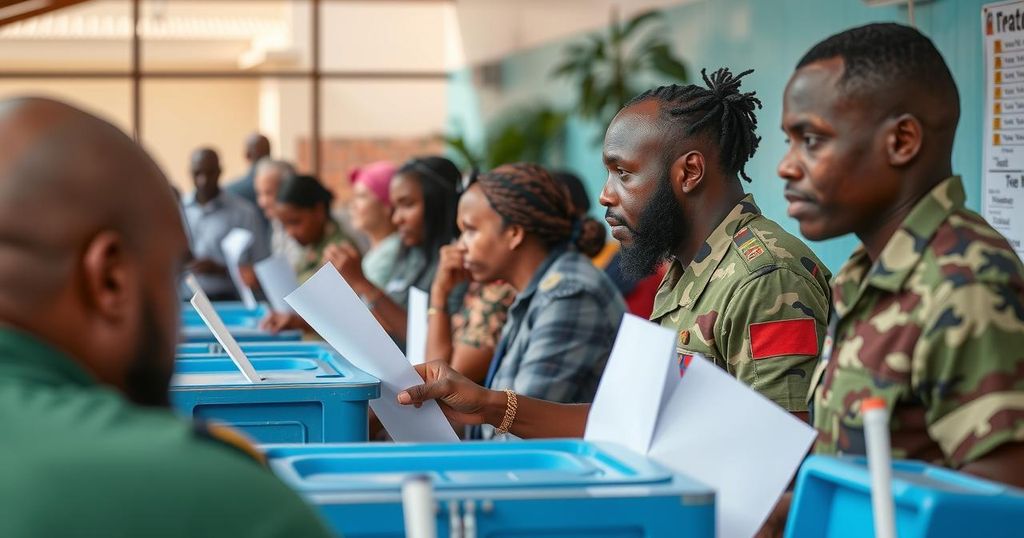Chad voted in a general election aimed at ending military rule, but turnout was low due to an opposition boycott. Skepticism about the election’s legitimacy persists, with many citizens feeling disillusioned. Claims of pre-determined results and reports of ballot irregularities have emerged, posing challenges to the government’s assertion of democratic transition.
Chad held a general election on Sunday, asserting that it represents a significant move towards the restoration of democracy following three years of military governance. Nevertheless, voter turnout has been reported as notably low, estimated at around 38 percent, amidst calls for a boycott from opposition parties who claim the outcomes were predetermined. President Mahamat Idriss Deby Itno encouraged voter participation through social media, emphasizing the historical importance of the day.
Opposition leader Succes Masra expressed disappointment, stating that the majority of voters complied with the boycott, feeling disillusioned by the process. Many voters voiced skepticism regarding the legitimacy of the election, pointing out systemic issues that render their participation ineffective. Notably, special provisions allowed military personnel and nomads to cast their votes on Saturday, contributing to claims of an inflated turnout figure.
The election unfolds against a backdrop of significant local challenges, including climate change impacts faced by rural communities, as well as ongoing security threats from Boko Haram in the Lake Chad region. Voter sentiment reflects a desire for substantive change in governance, though skepticism remains regarding the announcement of results and the actual conduct of the electoral process. Reports of ballot irregularities have further fueled doubts about the integrity of the elections, with political parties on guard against possible manipulation by the ruling party.
Polling stations were monitored by international observers, while citizens yearned for tangible improvements in everyday life under a new political framework. Despite the low turnout and apprehensions towards the election’s fairness, the government presents this voting process as a crucial step towards re-establishing democratic norms in Chad following a period of military rule.
Ultimately, the outcome of this election may determine Chad’s political landscape and inform the international community’s relationship with a nation striving to redefine its governance model after decades of authoritarian leadership.
Chad has been under military rule since the death of former President Idriss Deby, who led the country for over three decades. His son, Mahamat Idriss Deby Itno, took over in April 2021 and has since faced numerous challenges, including calls for democratic governance and opposition to his leadership. The government has initiated a transition towards democracy, highlighted by the recent general election, which aimed to establish a new parliament, provincial assemblies, and local councils. With a backdrop of socio-economic struggles and ongoing security threats, the election is viewed by many as pivotal for the country’s future political direction.
In summary, the recent general elections in Chad were marked by significant voter apathy, largely due to opposition calls for a boycott. The perceived lack of legitimacy in the electoral process raises concerns about the transition to democracy. The outcomes could significantly affect Chad’s political future and the well-being of its citizens, who seek substantial changes amid ongoing social and economic challenges.
Original Source: www.khq.com






